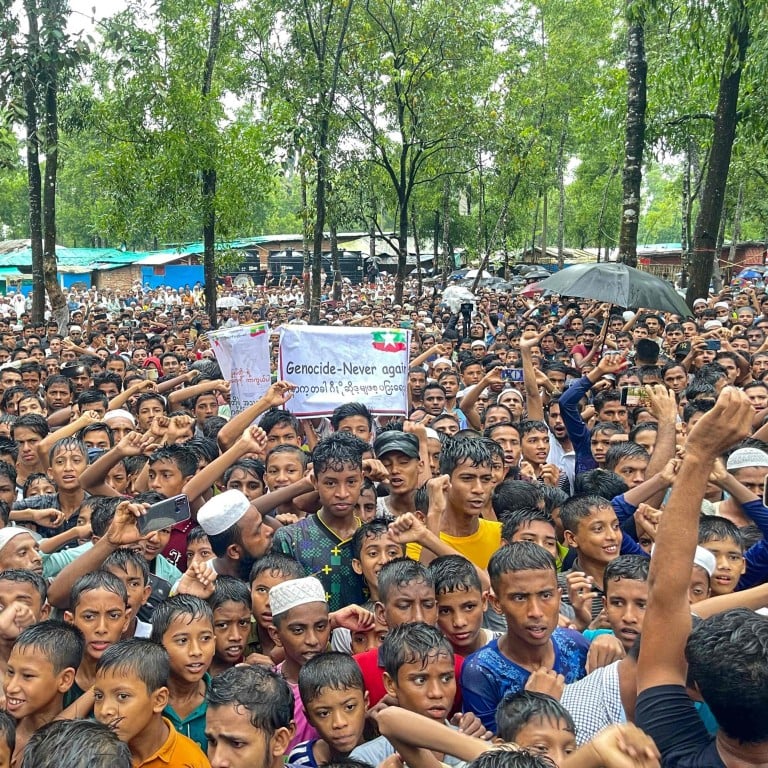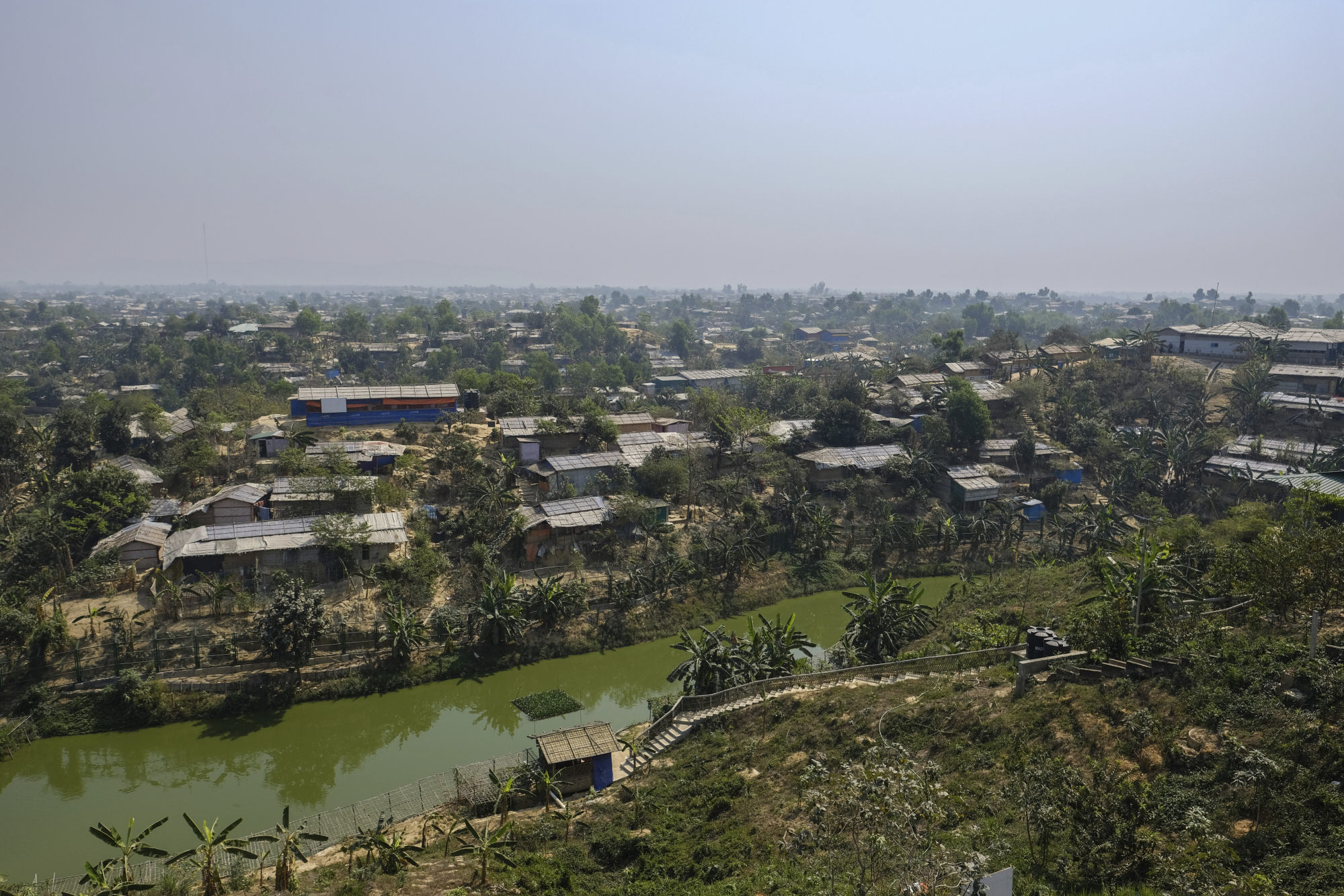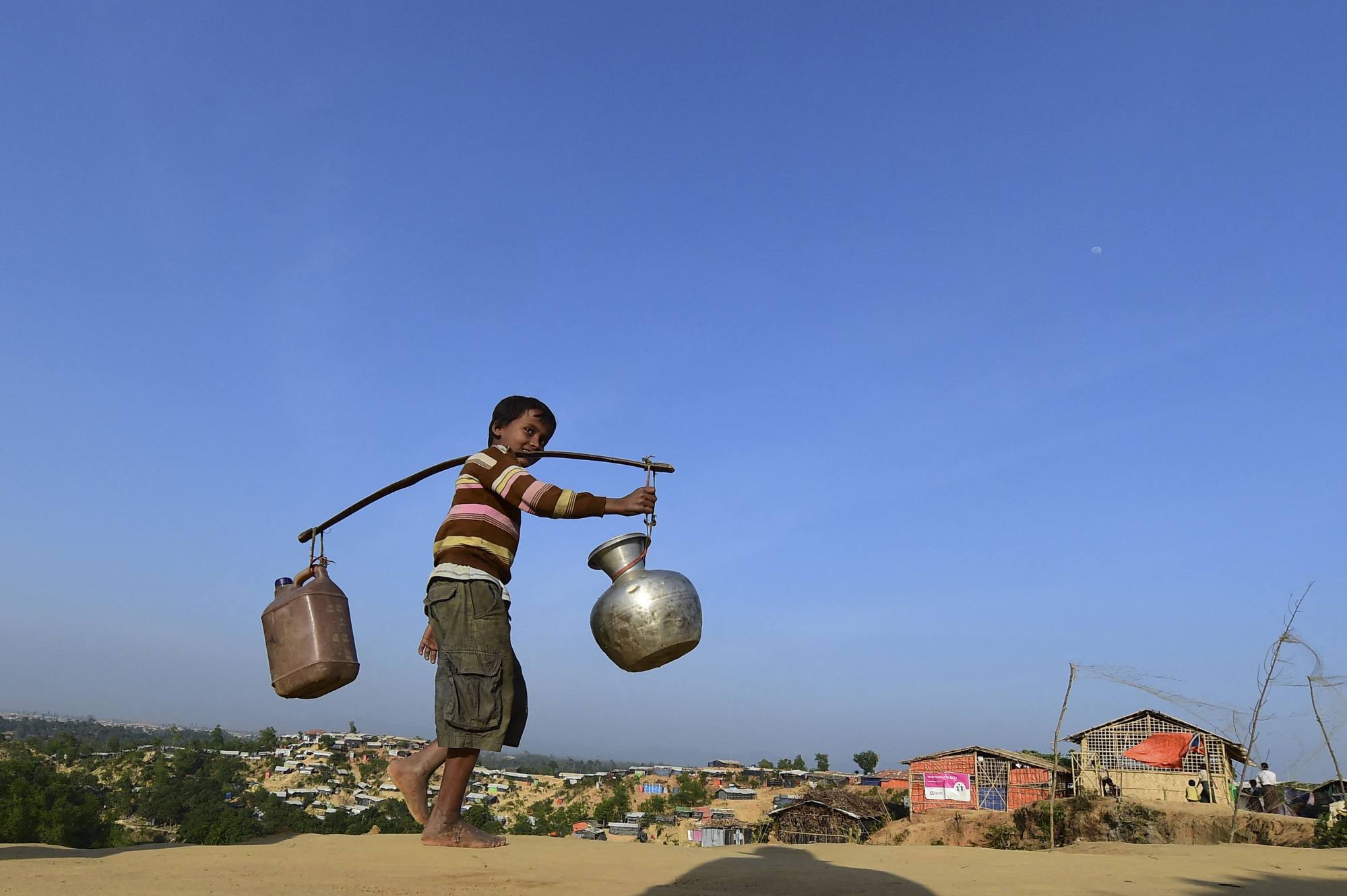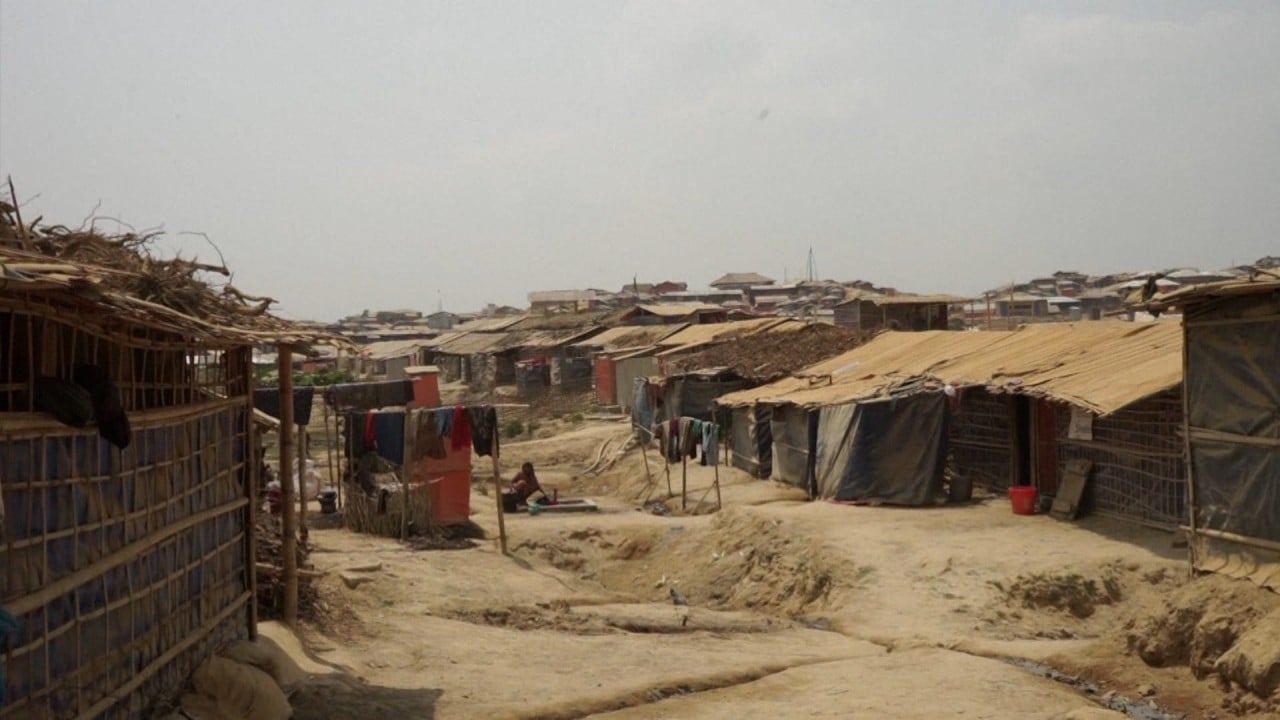
Rohingya problems deepen as violence surges in Bangladesh refugee camps
- Escalating violence in the camps and increasing repression by Bangladeshi authorities have left Rohingya refugees devoid of protection or justice
- Many Rohingya have also fallen prey to armed gangs involved in smuggling drugs, human trafficking and abductions for ransom
“We cannot escape this situation. And nobody is protecting us from these dangers,” she added, requesting to go only by her first name for fear of reprisals.
The massive camps in Bangladesh, which house almost a million Rohingyas, have seen escalating gang violence, resulting in the deaths of at least 55 people as of August.
But protections are hard to come by, according to activists, who say camp authorities like the Armed Police Battalion (APBn) are also culpable in enforcing severe movement restrictions and undermining the rights of the refugees.
Most Rohingya have been denied citizenship in Myanmar and are persecuted as illegal immigrants from South Asia.
Bangladesh took them in, in huge numbers, but they are now seen as a burden – unable to live and work freely outside their temporary homes in the camps, where they live in squalid conditions, worsened by supercharged climate events such as typhoons.
Dhaka maintains that the only solution to the armed violence in the camps is to repatriate the Rohingya back to Myanmar.

Power struggle
Many Rohingya have lived in the camps for years after fleeing from their homes in Buddhist-majority Myanmar in successive waves.
Mohammed Rezuwan Khan, a 26-year-old Rohingya activist who lives in Cox’s Bazar, said his people are now facing “a second genocide”.
“We are fully exposed to gangs who are fighting with arms in the congested camps,” he said. “A lot of innocent people, including children and elderly people, are dying in the crossfire.”
His elder brother was taken by a group last month, beaten bloody for two days and left with bruises and cigarette burns on his body, Khan said, adding that his own online activism has made his family a frequent target of the gangs.
“They want us to be quiet, and I think the main goal is to have control of the camps and people,” he said.
Climate dangers menace ‘extremely vulnerable’ Rohingya refugees in Bangladesh
Infighting between militant groups such as the Arakan Rohingya Salvation Army (ARSA) and the Rohingya Solidarity Organisation has devastated security in the camps, activists say, and many Rohingya have fallen prey to the gangs involved in smuggling drugs, human trafficking and abductions for ransom.
In September 2021, Mohib Ullah, a well-known Rohingya community leader, was gunned down while speaking at a refugee gathering. His family accused ARSA of his death, and activists say they have seen an uptick in violence, abductions, and killings since then. Bangladesh said in January it had deployed more than 2,000 APBn officers to improve security in the refugee camps.
“The main problem in the camps now is the lawlessness and insecurity being caused by these different factions of Rohingya armed groups who are fighting for supremacy,” said Chris Lewa of the Arakan Project, which provides support to Rohingya refugees.
“There are constant clashes between these groups, and the authorities appear to have lost control over this situation,” she added.
No protection or justice
Last month, a study by the Youth Congress Rohingya (YCR), a refugee-led advocacy organisation in the camps, found that the APBn had severely restricted the Rohingya’s freedom of movement.
These restrictions range from physical barriers such as barbed wire fences constructed around camps and strict curfews to the use of force, harassment and extortion to curb movement. The study reported restrictions on the use of smartphones or laptops.
The report was based on 241 surveys and 54 in-depth interviews with refugee respondents from 30 camps in Cox’s Bazar district, and included four interviews with police officers that corroborated the survey results.
Sixty-five per cent of the respondents said they believed the restrictions on movement they faced in Bangladesh were worse than what they had experienced in Myanmar.

With food rations to refugees being cut – from US$12 per person per month at the start of the year to US$8 now – they are not only going hungry, but also face violent backlash if they leave the camps to earn money.
Women are especially at risk of becoming victims of abuse and trafficking due to the lax security in the camps, according to researcher Andrew Riley, who spoke on behalf of Youth Congress Rohingya representatives as they did not want to be identified out of fear of government reprisals.
The extreme restrictions that are imposed by the police tasked with guarding the camps, coupled with the violence many refugees now face from armed gangs, have left the Rohingya completely helpless, according to John Quinley III, director of international rights group Fortify Rights, which focuses on Myanmar in particular.
“You have a situation where there are dangers from non-state actors but also a state authority that is repressing refugees, so the Rohingya have very little hope in their ability to access any kind of protection or justice,” he said.
Fates of Rohingya boats across Asia spotlight crisis of refugees ‘left to die’
Ever year, thousands of Rohingya risk their lives trying to escape the camp’s dire conditions, travelling in rickety boats in the vain hope of reaching safe harbour in Malaysia or Indonesia. Scores have died en route.
Riley, speaking on behalf of Youth Congress Rohingya, said it might be possible get some accountability from Bangladesh on this matter if humanitarian agencies – and the United Nations’ refugee agency in particular – stated their limitations in protecting refugees.
“Not stating that limitation gives Bangladesh a rationale to say that the needs of these refugees are being met in the camps, and we can keep them locked in there,” he said.
Until then, refugees like Fatimah say the Rohingya are trying desperately to survive in a state of hopelessness.
“We are not wanted and the world has forgotten about us,” she said, “Even our own people are trying to kill us.”



